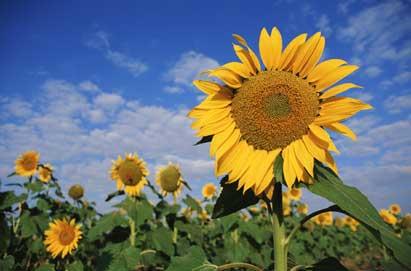The ideal potato of science
2011/10/27 Carton Virto, Eider - Elhuyar Zientzia
Last week I read with sorrow a title that brought this newspaper: "The ideal potato of science is a weapon to destroy traditional ways of life." These are the words of Emmanuel Lizcano, philosopher and mathematician, in the framework of a conference held in San Sebastian within the cycle “Agriculture and modernity”. Only from that conversation do I know Lizcano's thought — whether you can use the word — I was not at the conference. It is not therefore my intention to criticize anything he has said. I have referred here because it has seemed to me an indicator of a type of discourse that exists in society before the development of technology and, above all, biotechnology, a discourse that concerns me for many reasons.
It is not about being blind and mute in many of the hangovers of biotechnology applied to agriculture, saying that it is not about malicious technologies, but about malicious uses. The technology of the genetic transformation of living beings has revolutionized the process that depended on crossing, patience and genetic recombination to improve seeds and crops. However, the technique has not been the only one that has changed drastically: under the umbrella of globalization, it has also been the evolution of the productive model. The
juxtaposition of genetically modified plants is considered by some as an indispensable tool of an unfair production model and therefore a congenital pecatary. Others, for their part, claim that although the focus is on them, the problem is not transgenic in itself, but the misery of our development model. And no one can ask: Does it matter if the hen was an egg before? Last
September we talked a lot about the duality of science in one of the UPV summer courses. Precisely, the title of the course was “Social responsibility of science” and focused on technologies developed directly in the war or, although they did not develop to harm, in the war, as well as on those who made the opposite path. And if a topic that may seem clearer to solve showed several edges, how many more will not meet the food needs of all of us? The
technologies associated with food production are a complex example of duality. But precisely for this reason, it is necessary to differentiate what are the risks directly related to them and what are the difficulties of the productive model. Differentiate oneself, not to treat it as something unique, but to do the opposite: with social responsibility, to manage one and the other well. Experience has shown that it is not enough to ensure that food from biotechnology is safe for health and the environment. The socio-economic and political mataza of the model linked to agriculture and food production in general requires a different solution, but science as a culprit is not a solution. Science is a system of knowledge developed by humans and as a system of knowledge has no ideal potato. Researchers who intensify knowledge, developers of new technologies, entities that regulate the security, marketing and dissemination of applications, companies and people who sell, buy and consume them, who communicate them... to all, to their extent, it is up to us to develop a fair ideal potato. To say that the ideal potato of science is a weapon to destroy traditional ways of life does not help to free the bush, and I do not think it is social responsibility by deploying this type of discourse.

Gai honi buruzko eduki gehiago
Elhuyarrek garatutako teknologia





